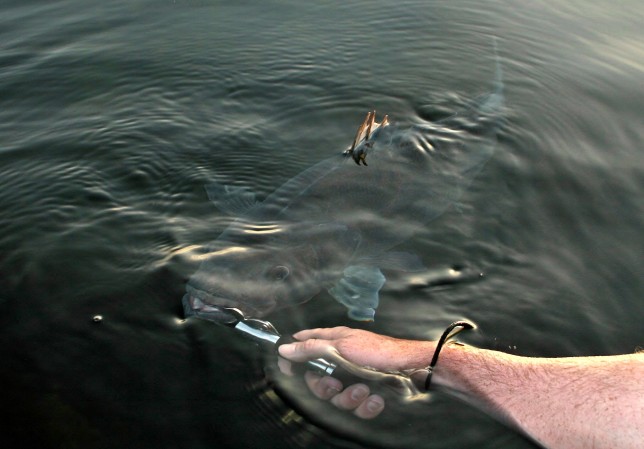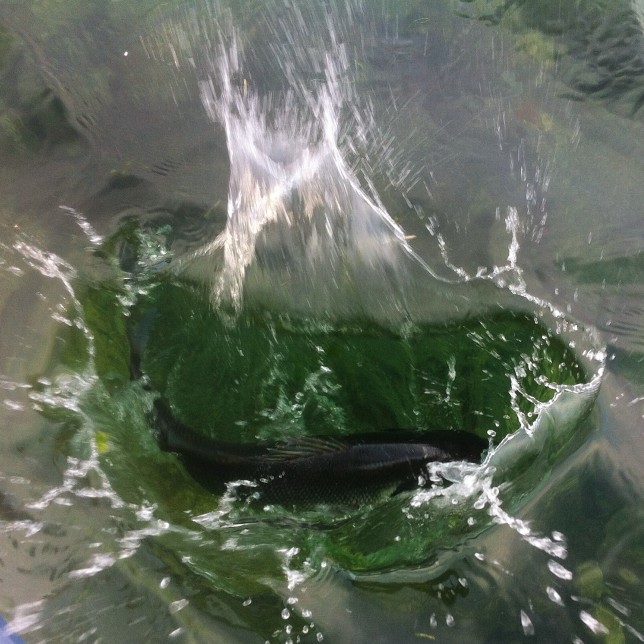Meetings and discussions both at an EU and UK level continue to take place to agree better ways to protect our bass.
Yesterday at a meeting in Brussels with DG Mare (the Commission department responsible for the implementation of the Common Fisheries policy) BASS were represented by David Curtis and Malcolm Gilbert. The early feedback was the meeting was reported as being “encouraging” and I will provide further information in due course.
On Wednesday Nigel Horsman, who heads the BASS restoration campaign, met with DEFRA. His bottom line is although again his meeting was encouraging, things won’t change overnight, so we need to continue to keep the pressure very much on the decision makers through continuing to write and email (there are some suggested people to contact below).
A year ago the prospect of around 40-50% cuts in bass landings in 2015 and further cuts in 2016 towards the 80% the EU scientists state need to happen to prevent stock collapse seemed just a daydream. Progress, although not as rapid as we’d like, has been significant and together our letters are making a difference. So we mustn’t let up now – it’s not as if in mid-February most of us can spend our time trying to catch bass anyway! So as we’ve said before investing 10 minutes or so now in campaigning might actually catch you more and bigger bass in the years to come. It’s not as if chances like this come around often!

This is Nigel’s excellent summary of the meeting with DEFRA:
“On Wednesday, on behalf of BASS and with the Angling Trust, I attended a meeting at Defra with senior officials involved in representing the UK in the discussions with the EU Commission and with formulating UK bass management policy. I found the meeting to be positive, constructive and encouraging. However, it was also clear that the road ahead is long and will be difficult.
The EU’s pelagic trawling ban is an excellent and essential first step towards a better bass management regime. The UK Government (and others, notably the Dutch) should be deservedly congratulated for this, alongside the EU officials who took this momentous decision. Following on from that the EU Commission are looking at two other elements to make up a package of measures for 2015. The second element is the 3 fish bag limit for recreational anglers that has now been proposed and may come in to force in March. The final element will cover other commercial fishing methods and may include things like an increased minimum landing size (MLS) and vessel catch limits and may be proposed in April. This piecemeal approach is hardly ideal combining both a lack of clarity about what might be on the table (in the final element) and a lack of certainty about timing of measures coming into force. However, on the plus side, this gives us more time to lobby and attempt to influence the outcome of the negotiations around these final two elements, to try to ensure that the measures proposed are sufficient as well as being fair and equitable. It was confirmed that our lobbying (at all levels, by everyone) has had a real effect in making officials and politicians much more aware of the value of recreational sea angling (RSA) and our needs and will lead to a more fair and equitable set of measures than might otherwise have been the case. We were encouraged to maintain the level of involvement and engagement with the process. It was also clear that the full 80% cut in catches will not be delivered in 2015, so further, additional measures at an EU level, are likely in 2016, not least, we hope, making the pelagic trawling ban permanent. Also on the EU agenda is a long term management plan for bass, which should look much more closely at economics and social issues around all the different methods of exploitation. But for now all energy is being directed at measures for 2015.
At a purely UK level, additional measures are also being considered. Here, Defra will work with the IFCA’s (and MMO) to decide what could be done and who should best do it. For political reasons, changes at Government level are difficult, partly due to something called the “better regulation framework”. This basically makes it very difficult (not impossible though) to either increase regulatory burdens on small businesses (e.g. by requiring all commercial bass landings to be fully reported) or to adversely affect the profitability of a small business (by restricting how much bass a commercial fishermen can land, for example). In addition, the impending general election gives a deadline for anything to go through parliament of the end of March. After that, it depends on who forms the next Government and what their priorities are!! The IFCA’s are perhaps better placed to bring in local regulation (perhaps the same across several IFCA’s) but that process also is time consuming and resource intensive, when the IFCA’s have limited budgets and many competing priorities. UK specific measures would include any changes to bass nursery areas regulations and perhaps minimum size increases (if the EU don’t sort this properly).
It was very clear talking to these Defra officials that to achieve any change, at either EU level or UK level is very much like long distance swimming through treacle. However, I was heartened that the will and energy exists in both politicians and officials to undertake that swimming challenge and to get us, eventually, to the right place. This will not happen quickly, changes may not come in the right order and we won’t agree with everything that happens. But it is also clear that the efforts of so many supporters, over so many years and in particular, the recent huge increase in engagement by sea anglers and bass anglers (and others) on this issue has had a large and positive effect. To see this through to the end will take another three years, I estimate, and over that time the more messages we send to politicians and officials reminding them why this is important and why we are important the more chance we have of getting the best possible result.
So, well done everyone for getting us this far, but now is not the time to let up! Keep on talking to MP’s, MEP’s, IFCA’s and everyone else who can influence the future of bass.”
Who to contact and what to say?
Its the fact you contact them that matters most! Just ask for the full 80% reduction in landings of our bass that the EUs own scientists (ICES) stated has to happen to prevent stock collapse and its job done – though by all means go in to greater specific details if you feel it appropriate!
Full details of the people to email at an EU level are contained in a recent blog here:
http://www.ukbass.com/eu-soon-to-discuss-further-bass-measures-our-bass-need-your-urgent-help/
At the UK level the DEFRA / Fisheries Minister (George Eustice) contact email is: defra.helpline@defra.gsi.gov.uk
Dont forget to also send your email to your own MP and your local IFCA.
